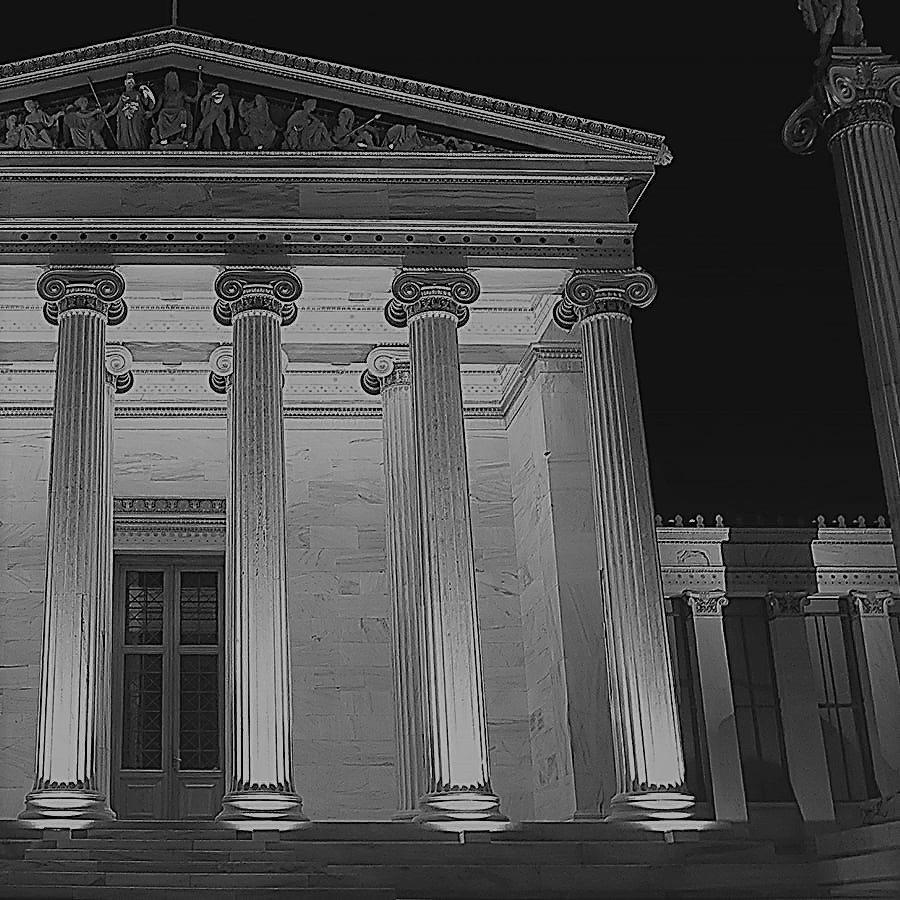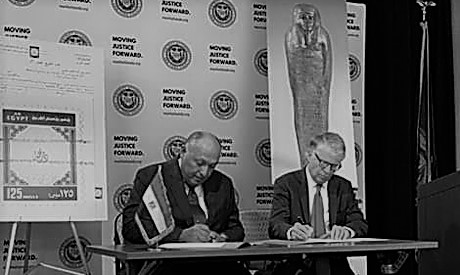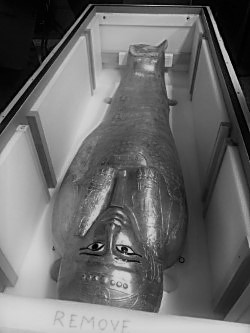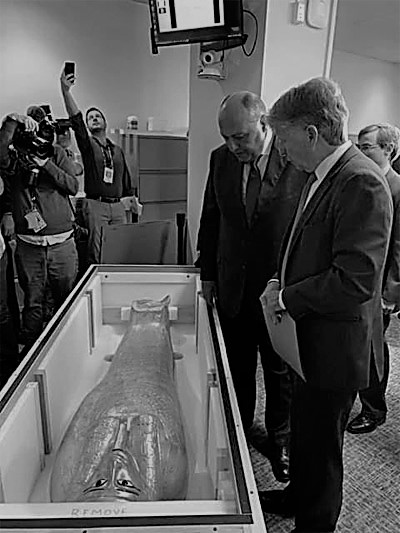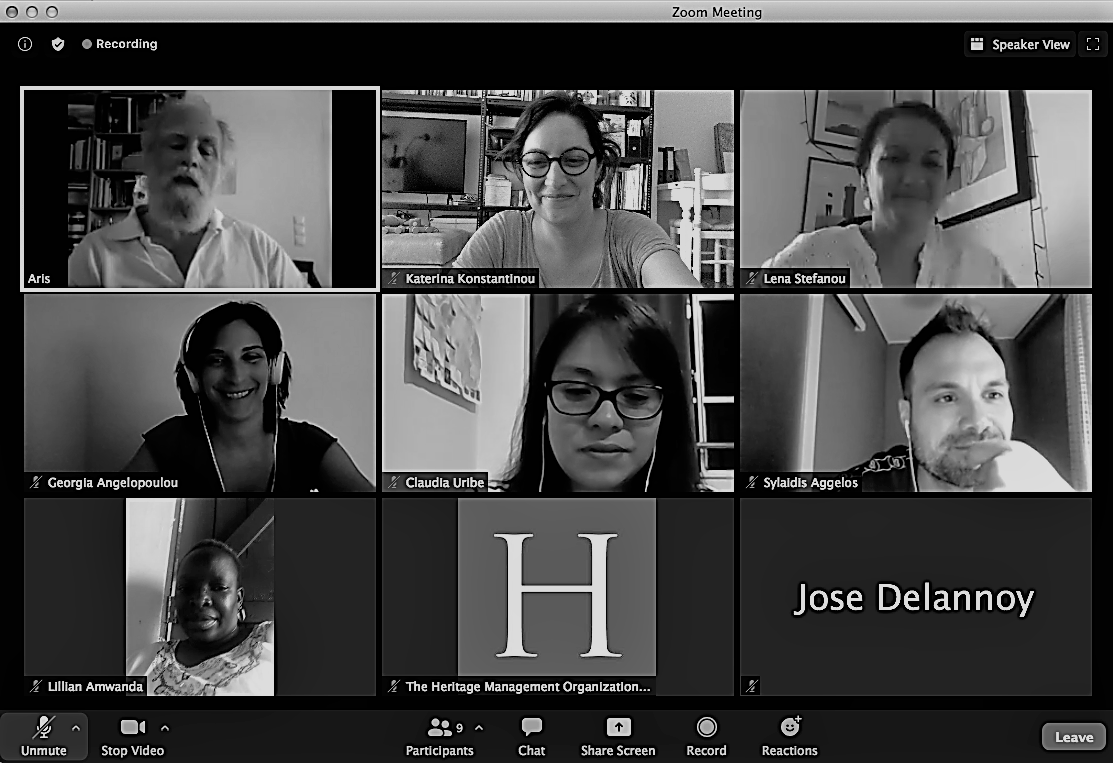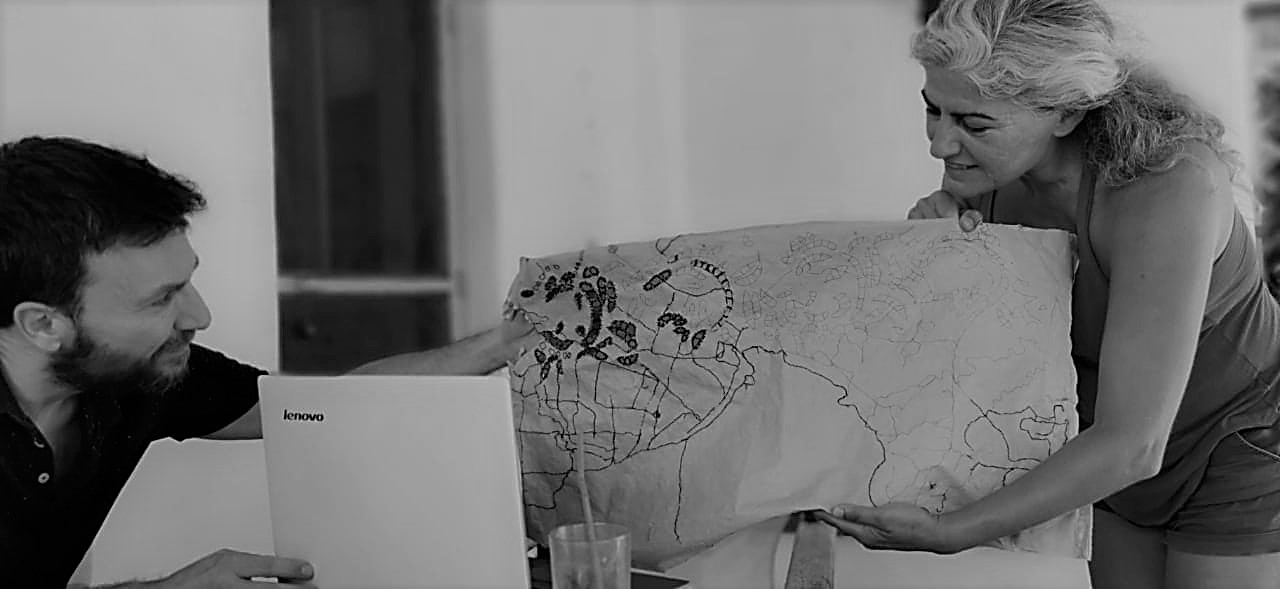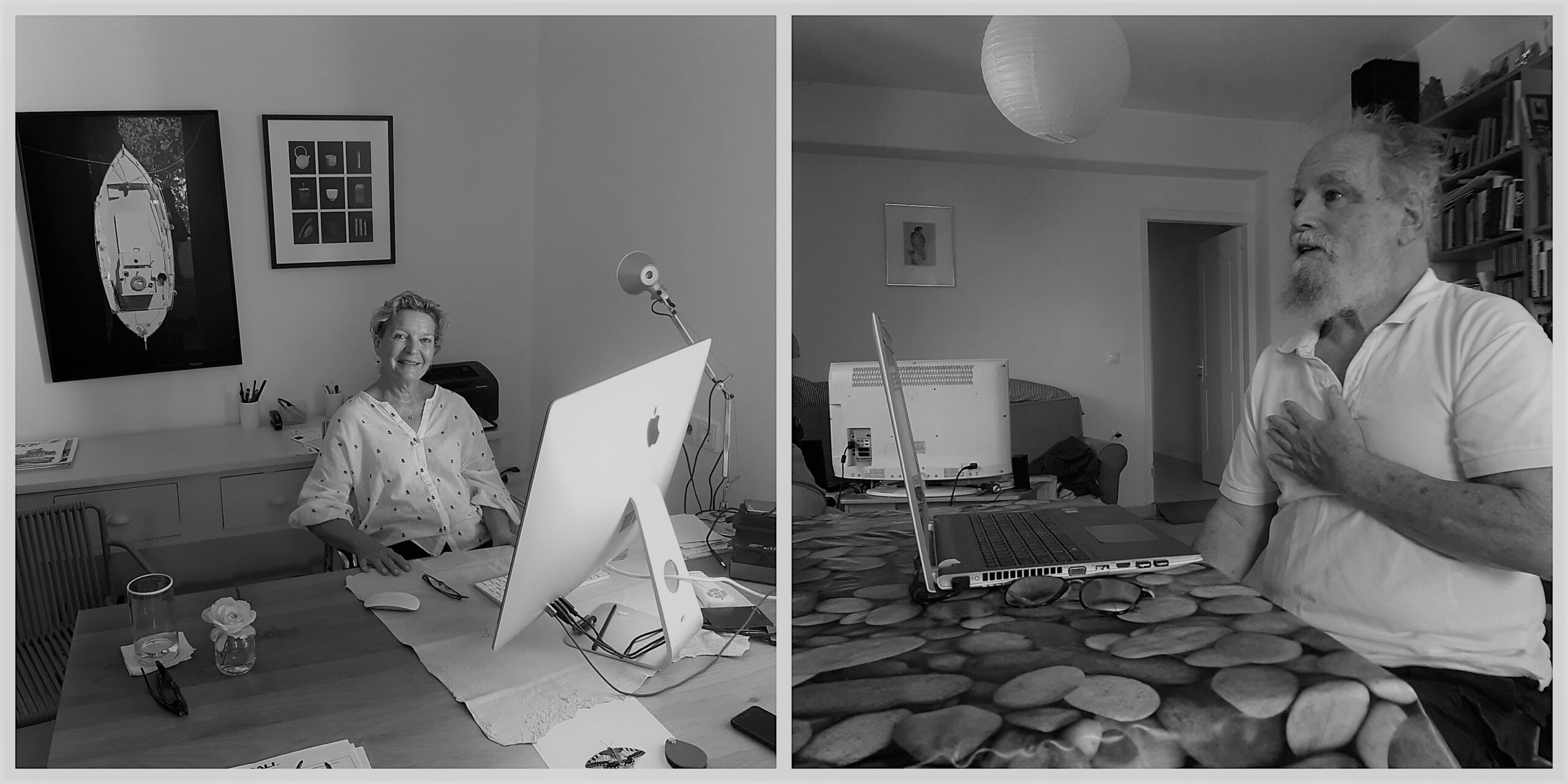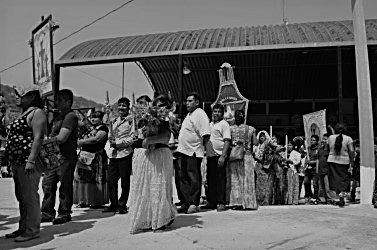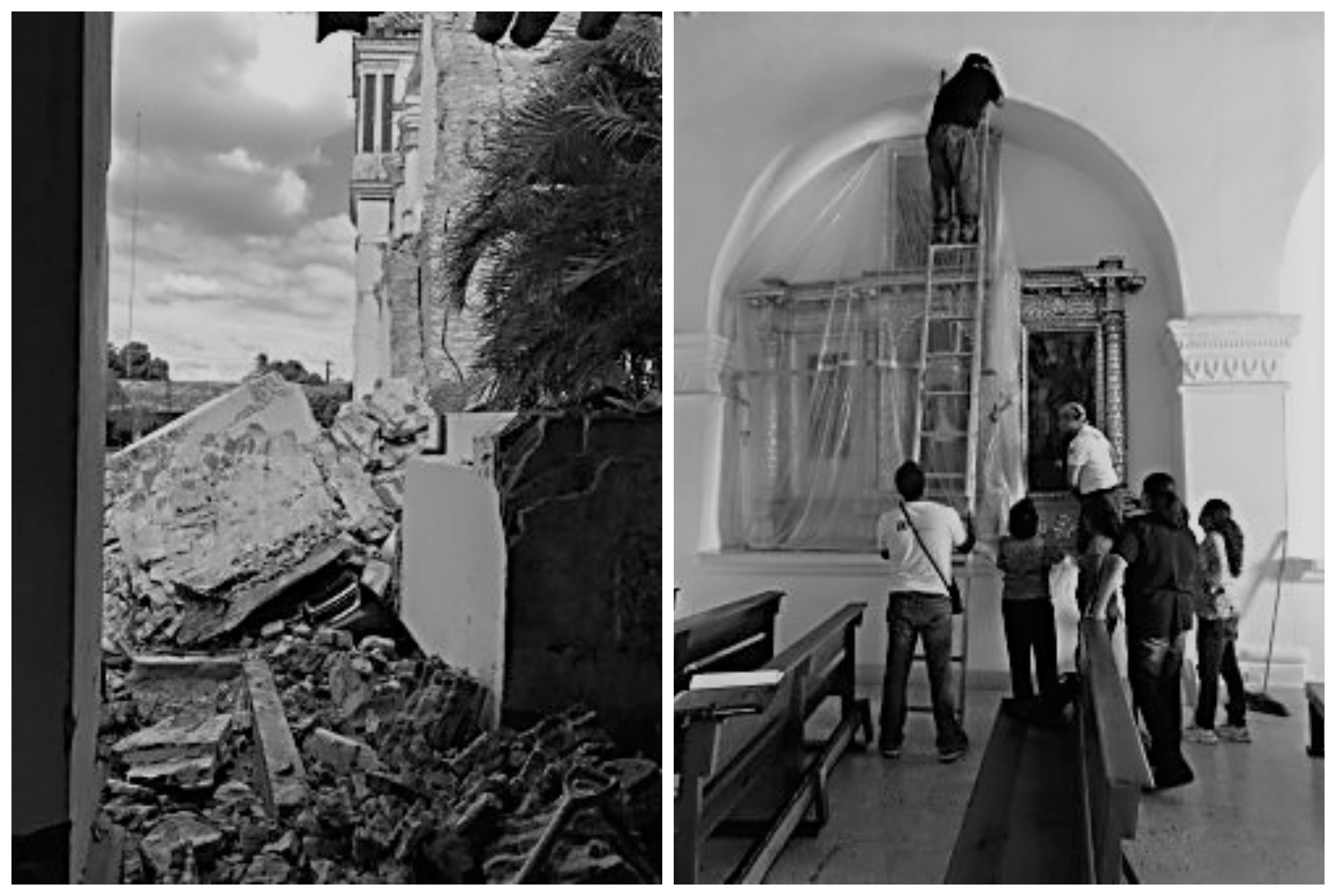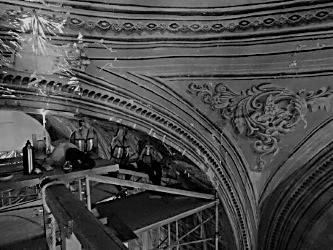: Uncategorized
Denkraum – Good Life & Sustainable Cities
Denkraum – Good Life & Sustainable Cities is the second event in the 2020 Denkraum series, hosted in three European cities and organized by the BMW Foundation Herbert Quandt in collaboration with Impact Hub Athens.
These events explore a positive vision of the future: Sustainable cities by 2030, in which a good life plays an essential part. Denkraum brings together leaders from the private, public, and civic sectors to explore how European cities can address environmental, economic, and social challenges.
Learn more about Denkraum, here.
SPACES OF THE CITY FABRIC
How can we transform empty cultural heritage buildings in sustainability motors for society & economy?
THE CHALLENGE
The sustainable reuse of buildings is a challenge for the whole world. There are historic buildings everywhere and in many parts of the world rules and legislation try to protect them. However, each case is different, as the economic, legal and social environment (beyond the political, technological and environmental environment) varies. The case of Greece, then, is not only particularly interesting and probably beneficial for the country if discussed, but also with clear international implications. This challenge revolves around the sustainable reuse of historic buildings. How do we maintain the values of built heritage while we reuse it and render it as a sustainable integrated resource for both the cities and the countryside? We are interested to examine the ways in which we can preserve our country’s built heritage without the need for continuous external investment in its maintenance.
THE CHALLENGE OWNER
The non-profit organization “The Heritage Management Organization” was founded in 2008 with the aim of retraining professionals in cultural heritage management in specialties that are now necessary for the complete execution of their work. Since 2016, the organization has operated internationally under the title The Heritage Management Organization , following the establishment of the “brother” non-profit Organization Heritage Management Organization Inc. in the United States of America. The Heritage Management Organization, recognizing the value of world heritage, is committed to exploit its potential as a foundation and driving force for self-awareness, collective understanding of culture, learning and sustainable development. The actions of the organization are mainly educational. To date, more than 685 people from 77 countries have participated in the organization’s programs, which are delivered in English and addressed to professionals as well as budding cultural heritage managers.
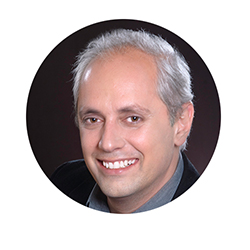
EVANGELOS KYRIAKIDIS
Dr. Evangelos Kyriakidis is the founding director of the Heritage Management Organization, that has trained hundreds of heritage managers from close to 80 countries. Evangelos is Senior Lecturer in Aegean Prehistory in the University of Kent, Canterbury. Trained in UCL and Cambridge in Classical Archaeology, Linguistics and Anthropology, and having fundraised 7M for heritage management projects, Evangelos has been for five years Senior Leventis Research Fellow in Heritage Management, a member of the Subject Committee for Archaeology in the UK, a fellow of the society of Antiquaries of London and of the Archaeological Society of Athens as well as a visiting professor at UCLA. Evangelos’ research on heritage management has contributed to Kent being rated second for its impact in society in the UK. He is the founding director of the MA in Heritage Management between Kent and AUEB, a program consistently rated as 3rd internationally for Culture and Creative Industries Management and first for Heritage by Eduniversal.
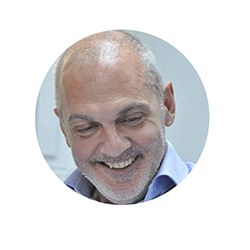
IOANNIS TROHOPOULOS
Ioannis Trohopoulos, was born in Veria, Northern Greece. Worked as Director for Veria Central Public library from 1988 till May 2012. In August 2010 during the IFLA Conference at Goteborg, Sweden received on behalf of Veria Library the annual “Access to Learning” 1 million$ award nominated by Bill and Melinda Gates Foundation. From June 2012 till April 2016 he served as CEO at Stavros Niarchos Foundation Cultural Center. He is a founding member of Future library, an NGO which supports the development of public libraries at national and international level. He was (March 2017- April 2019) Head of the“Athens2018-World Book Capital”, an important distinction which the city of Athens received by UNESCO. From June 2019 is director of Programs of Heritage Management Organization. He is also member of the Library board of Veria Central Public library.
PARTICIPANTS
ANASTASIA SIMOU
Lawyer – Municipality of Athens
VASSILIS GANIATSAS
Architect- Professor of Architectural Design – National Technical University of Athens
ANNA LAMPROU
Architecture & Urban Planning – Exhibitions Dept. Athens Biennale
ELEYTHERIOS SKIADAS
Vice Mayor of Municipal Properties
SOFIA AVRAMOPOULOU
Architect, Urban Designer – BARESPACE
GIORGOS KAPNIAZIS
Representative in the Real Estate Development Team OAED
ELENA LAMPROU
Director of the Municipal Market of Kypseli – Impact Hub Athens
DIMITRIS TRYFON
Partner at Charamida Investments – Charamida Investments
NICHOLAS KARACHALIS
Lecturer-Researcher in Cultural and Tourism Development – Val. URBACT Lead Expert
POKA YIO
Visual Artist, Consultant and Coach. Associate Professor, Athens School of Fine Arts. Founding Director, Athens Biennale
ANGELIKA STARBATTY
Senior Manager bei BMW Foundation Herbert Quandt
AFRODITI DIMOU
Co-owner – Karavan Serai
VASILEIOS FOURLIS
Chairman of the Board of Directors, Executive Member, Chairman of the Nomination and Remuneration Committee – Fourlis Group of Companies
ZOI MYLONA
European affairs advisor, Municipality of Tripolis Translator (GR, EN, FR, ES) Systemic counsellor
MYRTO TSITSINAKI
Heritage Conservation Specialist – Historic Buildings and Sites
FACILITATORS
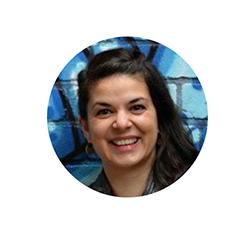
Dina Ntziora
A Cultural Manager and Creative Placemaking Producer committed to making places more memorable, fun, participatory, equitable and sociable. Focussing on creating public spaces that promote people’s health, happiness, and well-being by investing in the local creative community’s assets, inspiration, and potential.
In 2012 she led on the transformation of a Victorian police station designated by English Heritage as a grade II listed building, located at the commercial centre οf Bristol, to a thriving arts centre named The Island. In 2016 Dina worked on the Feasibility Study for Jacobs Wells Baths, a building of significant architectural and heritage merit in partnership with Bristol City Council property department, in order to ensure the long term use of the building whilst maintaining the community vision.
Her work with empty buildings transforms neighbourhoods and also brings something fresh and diverse to commercial centres. She has studied International and European Economics and Politics at Athens University of Economics and Business (AUEB) and holds an MSc in Development, Administration and Planning. She has previously worked for Bristol City Council, British Council, Athens Municipality and Athens Development Agency and is an active member of the European Placemaking Network. She is also a mentor for Women on Top in Athens.
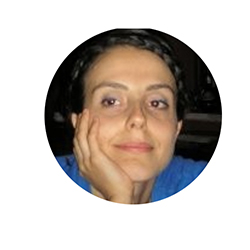
Lida Tsene
I hold a PhD from Panteion University, Department of Communication, Media and Culture. Apart from academic books on corporate and media responsibility, social media, storytelling and cultural management, I read loads of comics. I try to share everything I learn, and that’s the reason why I participate in many conferences about CSR, journalism, social media and comics and also organize educational workshops. I like to talk a lot about the things I am passionate about, so I am collaborating as teaching associate with several academic institutions and I am also Public Relations Director of Comicdom Press. I believe in the power of networks, that’s why I have friends all over the world.
AGENDA
OPENING PROGRAMME
ONLINE | All participants
TUESDAY 06 OCTOBER – 17.00 – 18.30
17:00 Opening // Kick-off
17:10 Keynotes: Alexandra Mitsotaki & Lenio Myrivilli
17:30 Small Q&A
17:45 Introduction of the experts and their the key challenges
18:00 Speed dating between challenge specific groups
DEEP DIVES PROGRAMME
ONLINE | Appointed groups
WEDNESDAY 07 OCTOBER
10:00 -12:30 Co-creation & deep dive on Green Mobility
16:00 – 18:30 Co-creation & deep dive on Waste Management
THURSDAY 08 OCTOBER
10:00 -12:30 Co- creation & deep dive on Spaces & the City Fabric
10:00 -12:30 Co- creation & deep dive on Finance
16:00 – 18:30 Co- creation & deep dive on Sustainability in Culture
FRIDAY 09 OCTOBER
10:00 -12:30 Co- creation & deep dive on Green Infrastructure
CLOSING PROGRAMME
ONLINE | All participants
FRIDAY 09 OCTOBER, 17.00 – 18.00
17:00 Closing of Denkraum Athens with BMW Foundation
17:10 Sharing harvest of the deep dives
17:50 Closing words
Network Stories: Bella Gelman
Describe your organization and the unique work that it is doing. Who and what are affected by the work? How does/will the work impact people’s lives?
I worked as an Antiquities Trafficking Analyst in the Antiquities Trafficking Unit of the New York County District Attorney’s office (herein ‘the Office’). The role of an analyst consists of processing and analyzing evidence that comes in regarding stolen and looted antiquities. Analysts work with local, national, and international law enforcement agencies, non-governmental organizations, academics, judges, lawyers, and prosecutors to recover artifacts and eventually repatriate them to their country of origin. Analysts also conduct heavy legal research on New York Criminal Law and international patrimony laws.
The work ultimately affects the origin countries that lose their antiquities due to stand-alone crime and theft, but also war-related theft, especially during the aftermath of war where you’ll find criminals stealing artifacts and trading them through the black-market. When antiquities get stolen from their country of origin, a little piece of culture dies and taking away culture is the worst thing you can do to a nation and its people. Cultural property is what unites people despite their differences. The job of the Antiquities Trafficking Unit is to restore that culture and advocate for protecting antiquities.
The repatriation ceremonies are one of the highlights of working in the field. Whenever the Office successfully seizes a piece and returns it to its country of origin, the District Attorney’s Office hosts a repatriation ceremony with the Minister of Culture of that specific country. Most recently, the Office returned a gold coffin of Nedjemankh from the Metropolitan Museum of Art to Egypt. The ceremony was attended by the Egyptian Minister of Foreign Affairs. The coffin was crafted between 150-50 BCE and once held the remains of the high priest Nedjemankh. It was smuggled from Egypt after the Egyptian Revolution in 2011 and traveled through the United Arab Emirates to Germany for restoration, then to France, and was finally sold to the Metropolitan Museum of Art in 2017. The Met fully cooperated with the DA Office for the investigation and lo and behold the coffin was returned to its rightful owner. These antiquities cases are complicated, challenging, and at times so frustrating, but being part of a team that helps preserve a country’s cultural heritage is truly gratifying.
Tell us about a project that has benefited from the training you received from us? Why was the project important? Was there anything unusual or surprising about the execution of this project?
Participating in the Heritage Management Organization’s fundraising workshop taught me strategies and skills that are broadly applicable even outside fundraising and development, such as writing a thank you letter or a letter of inquiry, researching and securing donors and grants, or even planning an event or campaign. It also helped to improve my research skills by forcing me to do non-academic research.
What are the global issues that your project addresses (e.g., fighting climate change, preserving heritage and culture, promoting local participation, )?
The global issue surrounding my work is of course the preservation of heritage and culture. The black market trade of illicit antiquities is bigger than most people realize. The core mission of the Antiquities Trafficking Unit at the Manhattan District Attorney’s Office is to seize any artifacts that come to New York illegally and repatriate them to their countries of origin. In this way, we help to combat clandestine excavations of antiquities. Although it is not an easy task from a legal perspective, the possibility of putting an end to such excavations and the success we’ve had finding stolen artifacts and returning them proves that, for lack of a better phrase, “the bad guys don’t win.”
Strategic Planning for Heritage Managers | Christos Maris
Strategy is considered to be the queen of the managerial disciplines and a key success factor in all areas of human activity. In this respect, there are numerous examples of how a successful strategy can lead to success, even in cases where resources are limited and are not overwhelmingly superior to those of competitors.
The “Strategic Planning for Heritage Managers” Workshop, instructed by Alexandros Papalexandris, Assistant Professor at the Athens University of Economics and Business, in May, aimed to provide the tools and methodologies to effectively address the topics of successful strategy formulation and implementation in organisations managing cultural heritage in the contemporary complex environment.
Christos Maris, working in the field of the Conservation of Arts- Antiquities / Risk Management in Preventive Conservation at the Hellenic Ministry of Culture & Tourism shares his experience with our online Strategic Planning for Heritage Managers Workshop.
Describe your organization and the unique work that it is doing. Who and what are affected by the work? How does/will the work impact people’s lives?
Give us some information regarding your educational/professional background and your current position.
Describe the main values that you have gained from the specific workshop.
Tell us about a project that will be benefited from the training you received from us? Why is the project important?
Has your organization worked on any other projects that are innovative, globally significant and can be replicated in a local market?
What are the global issues that your project addresses (e.g., fighting climate change, preserving heritage and culture, promoting local participation)?
Summer School 2020
The online summer school “Engaging Communities in Cultural Heritage” is organized by HERITAGE with the Paros Festival. It is an educational program normally scheduled to take place annually on the island of Paros during the first two weeks of July. During the Covid-19 crisis, we redesigned the summer school to combine online teaching with real-time research, both digital and live from a distance.
The summer school had a hybrid character, as it was at the same time a teaching environment, and an engagement project with our collaborators, the Paros Festival. Members of the local community participated as collaborative creators of local knowledge, and Katerina Konstantinou, a member of the Paros Festival, taught part of the course. The twelve participants of the summer school were instructed in the latest theoretical and practical developments in community engagement in cultural heritage. At the same time, they participated in daily group exercises that led them to effectively design a research and engagement strategy and apply it to the case of Paros Festival.
We believe that this hybrid character of educational and community work is the way forward in the post-covid situation for heritage institutions. Creating online communities and working groups that have an impact on local places combines the local with the global in creating transnational communication and collaborations.
Listen here to the podcast.
Strategic Planning for Heritage Managers | Arash Samiei Esfahani
Strategy is considered to be the queen of the managerial disciplines and a key success factor in all areas of human activity. In this respect, there are numerous examples of how a successful strategy can lead to success, even in cases where resources are limited and are not overwhelmingly superior to those of competitors.
The “Strategic Planning for Heritage Managers” Workshop, instructed by Alexandros Papalexandris, Assistant Professor at the Athens University of Economics and Business, in May, aimed to provide the tools and methodologies to effectively address the topics of successful strategy formulation and implementation in organisations managing cultural heritage in the contemporary complex environment.
Arash Samiei Esfahani, Urban Regeneration Administrator at the Iranian Ministry of Cultural Heritage shares his experience.
Describe your organization and the unique work that it is doing. Who and what are affected by the work? How does/will the work impact people’s lives?
Give us some information regarding your educational/professional background and your current position.
Describe the main values that you have gained from the specific workshop.
Tell us about a project that will be benefited from the training you received from us? Why is the project important?
Has your organisation worked on any other projects that are innovative, globally significant and can be replicated in a local market?
What are the global issues that your project addresses (e.g., fighting climate change, preserving heritage and culture, promoting local participation)?
Network Stories: Sofia Gonzalez
Describe your organization and the unique work that it is doing. Who and what are affected by the work? How does/will the work impact people’s lives?
In September 2017 there were two large earthquakes in Mexico. They damaged many buildings in cities and villages across 11 states in the south of the country, among them we have historical buildings, built between the 16th and 19th century. Most of which are churches, monasteries and religious edifications. Inside these buildings, heritage such as sculptures, murals, and paintings, were also affected by the earthquakes.
The National Institute of Anthropology and History (Instituto Nacional de Antropología e Historia) in Mexico is the institution in charge for the preservation and dissemination of the Mexican cultural heritage. In this sense is the executor for the conservation and reconstruction project of all the cultural heritage that was damaged of the earthquakes.
I started working in the conservation and reconstruction project of the historical edifications and cultural heritage affected by the earthquakes at the end of 2018, in the state of Oaxaca, one of the areas most damaged by the earthquakes. I began with a Conservator and Supervisor position and after six months I was promoted to Head Conservator in charge of the preservation of cultural objects and murals housed in around 200 churches. I plan, organize and execute projects for the conservation of oil and wall murals and sculptures in historical buildings. And I work together with architects, engineers, conservators and we have a close relationship with the stakeholders of the churches.
As a consequence of these earthquakes, the cultural landscape in a lot of villages was dramatically affected, changing the religious practices in the communities. For example, in some places, the churches are no longer safe, so the people have to pray and conduct all of their religious rituals in a new space outside the churches.
The reconstruction project has a great impact on the communities since it implies changing their rituals and religious practices because of the earthquakes. However, one of the goals of the project is to rebuild the churches and return to the religious daily life before the earthquakes.
Tell us about a project that has benefited from the training you received from us? Why was the project important? Was there anything unusual or surprising about the execution of this project?
This project requires the practice of planning, executing and controlling the work of a specific team to achieve goals in a specified time. The training I received from the Heritage Management Master’s program gave me these tools to face, solve and organized specific tasks.
The most surprising thing is to communicate with the stakeholders of the communities to achieve the project goals. Since the churches are not safe to celebrate mass inside doors. It is necessary to remove all the historical objects (like paintings, sculptures, bells, etc) from the inside to a safe place where this heritage is protected.
Some stakeholders are helpful and cooperate with the cause, however, others are very protective of their heritage and do not let the specialists participate so easily in these tasks. So, it is important to take a holistic approach with the stakeholders.
Has your organisation worked on any other projects that are innovative, globally significant and can be replicated in a local market?
Yes, the National Institute of Anthropology and History has worked on different projects to promote the Mexican heritage. Currently, there is a dissemination campaign in Oaxaca to promote and show all the restorations works carried on in edifications affected by the earthquakes, with an enormous presence on social media and radio.
What are the global issues that your project addresses (e.g., fighting climate change, preserving heritage and culture, promoting local participation,)?
The reconstruction of historical buildings and the heritage damaged by the earthquakes executed by the National Institute of Anthropology and History is a huge challenge because around 2000 historical buildings were damaged in the country. The institution needs human and economic resources.
Preserving religious heritage implies an approach by the specialists towards the communities. Many times, interdisciplinary work must be done with these communities to raise awareness about the importance of caring for and preserving their cultural heritage and promoting local participation.

